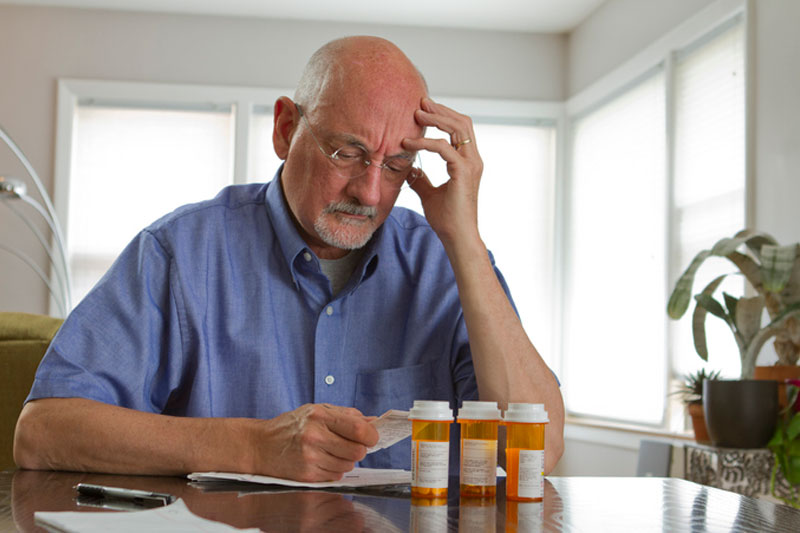
Some family caregivers may not know that there are medications that cause falls among seniors. Learn more about them.
What comes to mind when you think of fall prevention for older loved ones? Adding more lighting? Eliminating clutter along with other tripping hazards? Keeping the floors dry and clean? These are all important elements of preventing falls in the home, but there is another common cause to be aware of: medications that cause falls among seniors.
Many older adults are taking multiple medications, often prescribed by different doctors. That is why a crucial first step is requesting an extensive overview of all medications being taken. The doctor will be able to provide information on which medications or combinations of medications produce an elevated risk for falls. They may even be able to recommend different treatment plans that reduce or even eliminate medications to avoid dangerous falls.
Which Medications Are Associated With Increased Fall Risk?
There are specific medications that are known to increase the risk of a fall for older adults, by impacting:
- Cognitive function. Medications such as muscle relaxers, antihistamines, sleep aids, and those that help with motion sickness or vertigo can increase drowsiness or cause sedation. They can also cause or worsen confusion, especially for people with Alzheimer’s or another form of dementia.
- Blood sugar. Medications to regulate blood sugar for people with diabetes can sometimes cause hypoglycemia (low blood sugar), which can lead to dizziness and a greater risk for falls.
- Blood pressure levels. Medications for males with an enlarged prostate and those prescribed for high blood pressure may cause an unexpected drop in blood pressure. It is especially common upon standing, a condition called postural hypotension.
What Should You Do if a Loved One Is Taking One or More of These Meds?
First, make a list of all the medications the person is taking. This should include OTC medications, supplements, and prescriptions. Write down how frequently the individual takes each medication, the dosage, and any other notes and comments. With the list in hand, schedule a consultation with the person’s primary care physician.
The goal is to better understand which medications are increasing fall risk on their own, in addition to whether any combination of medications may cause any negative side effects. Ask for answers to the following questions:
- What is each medication for? You will want to find out exactly why the meds have been recommended for the person. Determine whether there are any other options to bring about the same outcomes without an elevated risk for falls.
- What are the benefits and drawbacks of continuing to take a medication? Carefully look at the benefits of taking a medication that increases fall risk, as well as the harmful ramifications of stopping the medication.
- Is a reduced dose possible? It might be possible for the doctor to lower the amount of a medication while still getting the same benefit and decreasing troubling side effects and fall risks.
Falls for older adults can be very dangerous and debilitating. With the doctor’s advice, you may be able to take steps to help minimize this risk for someone you love.
Home Care Can Help!
Morning Glory Home Care’s skilled care providers can provide transportation and accompaniment to medical appointments, medication reminders, fall risk assessments, and a steadying hand to aid in safe showering, transfers, walking, and more. Contact us today at 618-667-8400 for additional details on how in-home care services can help promote safety in the home for older loved ones! Our award-winning care is proudly offered in Alton, Granite City, Edwardsville, Collinsville, Belleville, and nearby areas.
